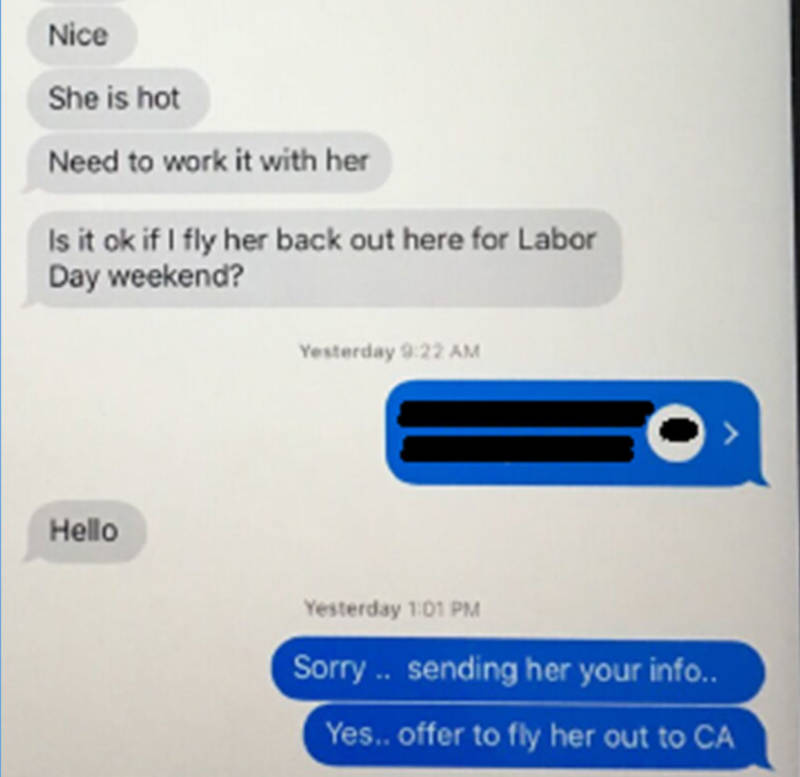The co-founder of a Silicon Valley venture capital firm sexually harassed and assaulted a female employee, giving her unwanted massages and engaging in other groping, secretly taking photos of her and sharing them with other men, the state’s fair employment agency alleged in court documents filed Friday in San Francisco federal court.
Lee William McNutt of Dallas, Texas, made regular, unwelcome sexual advances and solicitations of the employee from about July 2017 through March 2018, the state Department of Fair Employment and Housing said in a civil rights lawsuit.
The employee, identified in the suit only as Jane Doe, worked for Silicon Valley Growth Syndicate, a firm McNutt co-founded in 2012 that was then based in Menlo Park, the complaint says.
Through a spokesman, McNutt denied all of the allegations in the complaint. Lawyers for his business partners, who were named as co-defendants for allegedly failing to prevent the harassment, did not respond immediately to requests for comment.
The lawsuit says Doe attended McNutt’s alma mater — Southern Methodist University in Dallas — from 2013 to 2017. She worked as a babysitter for several families in the area.
Court filings say Doe was 21 and McNutt was in his 60s when he approached her at children’s soccer games, offering her work including modeling and dog sitting.
McNutt gave Doe an internship at the Syndicate. She began working there in January 2017 and began full-time employment in June. Around September of that year, she was promoted to vice president, operations and communications.
The state agency’s suit details several episodes of alleged sexual harassment, including:
- In August 2017, McNutt gave Doe an iPad to use for work. On it, she later found several close-up photos showing her in a bathing suit — images the complaint says were taken without her consent during a work trip to Florida. The suit says that during her employment, several photos of other young women — either in underwear or naked and taken from angles that suggested the images weren’t taken with permission — appeared on an iCloud stream on the device.
- In an undated screenshot of a text message exchange, McNutt forwarded a video and photo of Doe in a bikini to another man, who responded, “She is hot. Need to work it with her. Is it OK if I fly her back out here for Labor Day weekend?” McNutt replied: “Yes … offer to fly her out to CA.”
- During a late August 2017 work trip to La Jolla, McNutt took Doe to a nude beach without first telling her where they were going. He removed his bathing suit and walked within her field of vision. He also took her back to the Airbnb where they were staying, asked her to change into shorts and then to lie down so he could give her a massage. He placed his hands under her shorts and massaged her bottom, placing his fingers close to her genitals. When he said it was his turn for a massage, she went to her room, locked the door and pushed a night table in front of it.
Doe took steps to protect herself after the La Jolla trip, the suit says, and in January 2018 refused to travel with McNutt to Florida when he said she could stay with him in a one-bedroom condo or not come at all. She later sought legal help, and in June 2018, McNutt told her that her contract would not be renewed, according to the complaint.
The fair employment agency first filed the suit in San Francisco Superior Court in late June 2019. McNutt and his two co-defendants moved last month to transfer the case to the U.S. District Court for Northern California. The state agency filed an amended complaint with the federal court on Friday.
A spokesman for McNutt said the allegations were “baseless.”
“The case is now properly being overseen by a federal judge, who we believe will correctly determine that the agency’s case has no valid basis for moving forward,” David Oates said in a statement.
Oates also described McNutt as a “dedicated family man who, through his charitable actions, is a strong supporter of veterans.”
McNutt is a co-founder and chairman of the nonprofit group State Funeral for World War II Veterans.
“Despite the negative impact on his family and friends, Mr. McNutt will vigorously work to have this case dismissed or resolved per the available civil law process,” he said.

